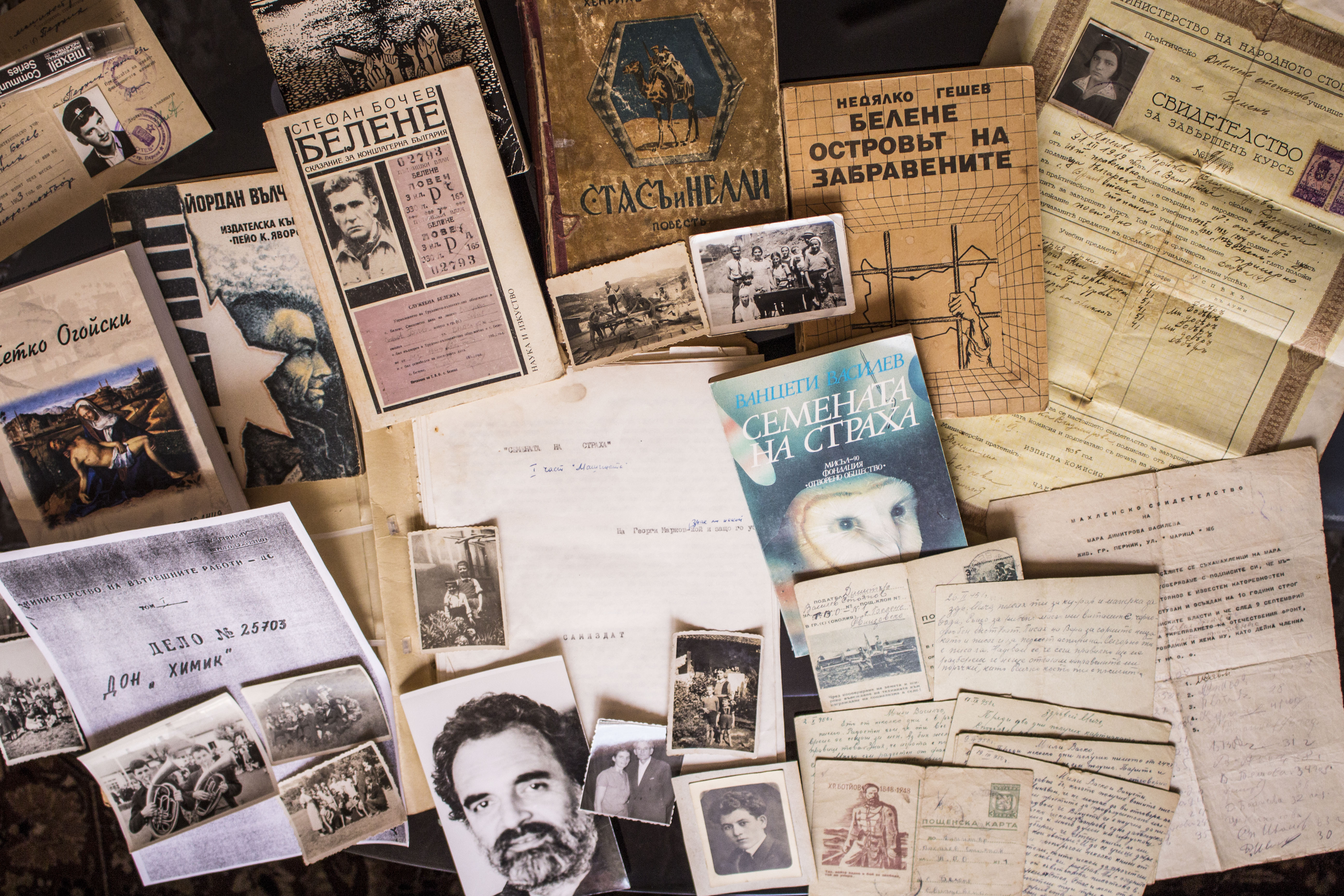The private family collection presents a personal view on totalitarian power. It includes materials from and the point of view of the family whose member was deemed "an enemy of the people" by the communist state. The life paths of the creators of the collection highlight the different stages and transformations of the socialist regime: an example of the repression of members and supporters of opposition parties, characteristic of the 1940s and 1950s, is found in the fate of the Dimitar and Marika Stoyanov. Dimitar Vasilev Stoyanov, a member of the Federation of Anarchists in Bulgaria, was arrested in 1942 and sentenced to 10 years in prison. Upon the establishment of the Fatherland Front Government in September 1944, he was released only to be sent by the new communist government to a forced labor-educational camp for a month in 1945. As an anarchist, he again faced political persecution. After several years of freedom, he was re-sentenced to forced labor in 1948. He was released in 1953 after Stalin's death, during a period of partial political amnesty.
Dimitar Stoyanov's wife, Marika Vladimirova Stoyanova, herself under observation and pressure by the authorities, kept the letters and postcards from her husband's prison period. She also kept photos sent but not received by him and documents related to state actions against her husband and her requests for his release. In the 1960s their son, Vantzeti Vassilev, also began to contribute to the collection, including his recorded memories of his father, of his friends, and of former political prisoners.
Due to his "untrustworthy" origins, Vantzeti Vassilev was under pressure by the state. Despite his refusal to be recruited as an agent by the State Security, Vantzeti Vassilev graduated from the Higher Institute of Chemical Technology (VCHTI) in Sofia in 1971. He worked as a chemical technician at factories in Pernik, Radomir, and Zemen. After he won a competition he was admitted to a postgraduate degree program. He successfully defended his dissertation and began to work at an institute of the Bulgarian Academy of Sciences, although not in his narrow specialty of petrography. However, feeling pressured by the secret services and unwilling to cooperate, Vassilev left his job and became a swineherd in his mother's village, Vranya Stena (Pernik district). He used the time to write the autobiographical novel Semenata na straha [The Seeds of Fear], based on his personal experiences and stories from his father and other former prisoners. Out of fear of identifying those who shared their experiences, he destroyed all relevant notes. In 1988, Vantzeti Vassilev finally decided to go into exile. Through Serbia and Italy, he reached New York in 1989.
Vassilev managed to take a copy of his manuscript for Semenata na straha [The Seeds of Fear] with him to America. Another copy of the manuscript he left in his home, where he found it again in 2016. It was hidden in the ceiling of his old barn. In New York Vassilev became an author of novels. He finished the book, which is a first-person story about the humiliation and impasse of a young scientist in the conditions of the totalitarian regime. The book was published in Sofia in 1991 with the financial support of the Open Society Institute and then presented in New York. In New York, Vassilev established contact with a number of Bulgarian immigrants, such as Hristo Yavashev–Christo and Jean-Claude, for whom he wrote the book Da opakovash vyatara. Po stapkite na Christo i Jean-Claude [Packing the Wind. In the Steps of Christo and Jean-Claude] (2013).
Created in 2016, Vantzeti Vassilev's collection is not well-known in Bulgaria. Chief among the goals of the collection’s author/creator are keeping alive the record of his parents’ fate, and presenting his views on the communist regime and the various forms of state violence, from direct repression in forced labor camps to psychological pressure, restrictions, and attempted recruitment into the security services. The collection presents one form of resistance to totalitarian power and the ability to assert one’s political identity and social convictions through "escaping into oneself" and writing.

